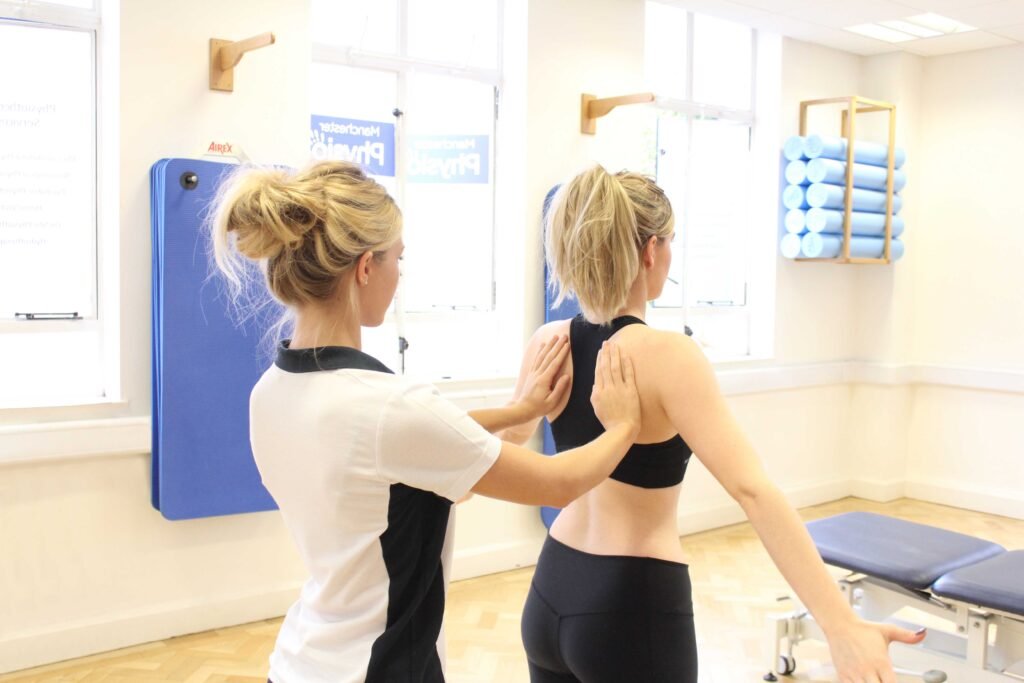Physiotherapy Services health plays a critical role in overall well-being, and conditions affecting the lungs can significantly impact one’s quality of life. From asthma and chronic obstructive pulmonary disease (COPD) to post-COVID recovery, breathing difficulties can make daily activities challenging. While medications and lifestyle changes are essential parts of treatment, physiotherapy offers a transformative approach to respiratory care.
This article explores how physiotherapy techniques are revolutionizing respiratory health, empowering individuals to breathe easier, improve lung function, and enhance their quality of life.
What Is Respiratory Physiotherapy?
Respiratory physiotherapy is a specialized branch of physiotherapy that focuses on improving lung function, enhancing breathing patterns, and clearing the airways. It involves various exercises, manual techniques, and breathing strategies tailored to help patients manage both chronic and acute respiratory conditions.
Some common respiratory conditions treated with physiotherapy include:
- Chronic Obstructive Pulmonary Disease (COPD)
- Asthma and Bronchitis
- Cystic Fibrosis
- Post-COVID-19 respiratory complications
- Pneumonia and lung infections
- Respiratory conditions caused by neuromuscular diseases
Why it matters:
Physiotherapy is revolutionizing respiratory care by offering non-invasive, drug-free methods to help patients manage their symptoms effectively and regain control over their breathing.
The Role of Physiotherapy in Respiratory Health
Physiotherapy enhances respiratory health by clearing mucus, improving lung capacity, and strengthening breathing muscles. Below are some of the key ways physiotherapy contributes to better respiratory outcomes:
- Clearing the Airways: Techniques like chest physiotherapy, percussion, and postural drainage help loosen and remove mucus from the lungs, improving airflow and reducing infections.
- Optimizing Breathing Patterns: Physiotherapists teach patients breathing exercises (such as diaphragmatic breathing) to improve oxygen intake and make breathing more efficient.
- Increasing Lung Capacity: Cardiovascular exercises and breathing drills increase lung function and endurance, helping patients breathe better over time.
This multi-faceted approach enables patients to regain their independence and experience improved respiratory health.
Key Physiotherapy Techniques for Respiratory Health
3.1. Breathing Exercises
Breathing exercises are essential in improving lung efficiency and controlling shortness of breath. Two commonly used techniques include:
- Diaphragmatic Breathing: Encourages deeper breathing by engaging the diaphragm, reducing the effort required to breathe.
- Pursed-Lip Breathing: Helps patients exhale slowly and prevent airway collapse, especially during physical activities.
These techniques are beneficial for patients with COPD, asthma, or those recovering from lung infections
3.2. Airway Clearance Techniques
When mucus builds up in the airways, it obstructs breathing and increases the risk of infections. Physiotherapists use various techniques to remove excess mucus:
- Percussion and Vibration: Gentle clapping on the chest to loosen mucus.
- Postural Drainage: Adjusting the body’s position to help mucus drain from the lungs.
- Active Cycle of Breathing Techniques (ACBT): Involves breathing exercises to mobilize and clear mucus.
These methods reduce the frequency of infections, helping patients with conditions like bronchitis or cystic fibrosis breathe easier
3.3. Pulmonary Rehabilitation Programs
Pulmonary rehabilitation is a comprehensive program that combines exercise, education, and breathing techniques. It is highly beneficial for people with chronic lung diseases.
Key components include:
- Supervised physical exercise to strengthen respiratory muscles
- Breathing techniques to reduce breathlessness during activities
- Education on lung health to help patients self-manage their conditions
Pulmonary rehab programs significantly improve the quality of life for patients with COPD and post-COVID respiratory complications.
3.4. Inspiratory Muscle Training (IMT)
Inspiratory muscle training strengthens the muscles used for breathing, such as the diaphragm. This technique involves breathing exercises with resistance devices to increase lung function and endurance Looking for the Best Home Health Care Services in Dubai? Here’s What You Need to Know!.
IMT is especially helpful for:
- Athletes looking to improve lung performance
- Individuals recovering from respiratory infections
- Patients with chronic respiratory conditions
Physiotherapy Transforms Post-COVID Respiratory Recovery
COVID-19 has caused widespread respiratory challenges, with many patients experiencing long-term breathing issues even after recovery. Physiotherapy plays a critical role in addressing these complications through:
- Breathing re-education: Correcting abnormal breathing patterns that develop during illness.
- Lung function recovery: Gradual exercises to rebuild lung capacity.
- Fatigue management: Teaching patients how to manage breathlessness during physical activities.
Post-COVID recovery programs, led by physiotherapists, have helped many individuals restore their respiratory health and regain independence.
Benefits of Respiratory Physiotherapy
Physiotherapy offers numerous benefits for respiratory health beyond just symptom management. Some of the key benefits include:
- Reduces Breathlessness: Breathing exercises help patients manage shortness of breath more effectively.
- Prevents Infections: Airway clearance techniques lower the risk of infections in conditions like bronchitis and pneumonia.
- Improves Physical Endurance: Cardiovascular exercises enhance stamina and lung capacity, making everyday tasks easier.
- Enhances Quality of Life: By managing symptoms better, patients feel more in control of their respiratory health.
- Reduces Hospital Visits: Effective self-management through physiotherapy reduces the need for emergency interventions.
Benefit from Respiratory Physiotherapy
Respiratory physiotherapy is beneficial for anyone experiencing breathing difficulties, chronic lung conditions, or post-illness recovery needs. Some of the key groups who benefit include:
- Individuals with chronic respiratory diseases like COPD or asthma
- Patients recovering from respiratory infections like pneumonia or COVID-19
- People with neuromuscular conditions affecting breathing function
- Athletes looking to improve breathing efficiency and lung capacity
- Seniors managing age-related respiratory issues
Conclusion
Physiotherapy has revolutionized the way respiratory conditions are managed. With its comprehensive, patient-centered approach, it empowers individuals to take control of their respiratory health and experience long-lasting improvements. From breathing exercises and airway clearance techniques to pulmonary rehabilitation programs, physiotherapy provides non-invasive, effective solutions for people of all ages.
Whether you are managing a chronic lung condition, recovering from an infection, or simply looking to improve your breathing, physiotherapy can be a game-changer. With the help of a qualified physiotherapist, you can breathe easier, improve your endurance, and regain your quality of life.




